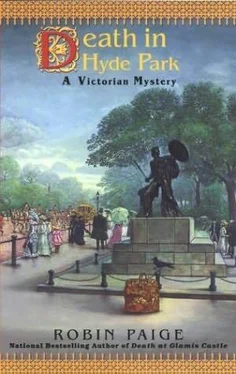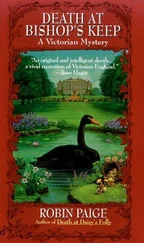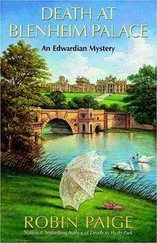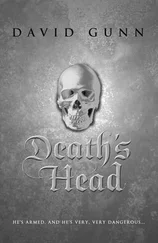Robin Paige - Death in Hyde Park
Здесь есть возможность читать онлайн «Robin Paige - Death in Hyde Park» весь текст электронной книги совершенно бесплатно (целиком полную версию без сокращений). В некоторых случаях можно слушать аудио, скачать через торрент в формате fb2 и присутствует краткое содержание. Жанр: Классический детектив, на английском языке. Описание произведения, (предисловие) а так же отзывы посетителей доступны на портале библиотеки ЛибКат.
- Название:Death in Hyde Park
- Автор:
- Жанр:
- Год:неизвестен
- ISBN:нет данных
- Рейтинг книги:5 / 5. Голосов: 1
-
Избранное:Добавить в избранное
- Отзывы:
-
Ваша оценка:
- 100
- 1
- 2
- 3
- 4
- 5
Death in Hyde Park: краткое содержание, описание и аннотация
Предлагаем к чтению аннотацию, описание, краткое содержание или предисловие (зависит от того, что написал сам автор книги «Death in Hyde Park»). Если вы не нашли необходимую информацию о книге — напишите в комментариях, мы постараемся отыскать её.
Death in Hyde Park — читать онлайн бесплатно полную книгу (весь текст) целиком
Ниже представлен текст книги, разбитый по страницам. Система сохранения места последней прочитанной страницы, позволяет с удобством читать онлайн бесплатно книгу «Death in Hyde Park», без необходимости каждый раз заново искать на чём Вы остановились. Поставьте закладку, и сможете в любой момент перейти на страницу, на которой закончили чтение.
Интервал:
Закладка:
They had just finished dessert-one of Mrs. Hall’s splendid trifles-when a maid came in and whispered to Richards. In turn, Richards came to the table and whispered to Kate, who put down her napkin and rose.
“I must leave you gentlemen now,” she said. “I’ve received a message to which I must respond-from our theatrical friend, Charles.” She smiled at their guest. “Canon Rawnsley, so lovely to see you again, as always. I hope you will visit us at Bishop’s Keep.”
The men stood. “Oh, I shall,” Canon Rawnsley replied, with a genial enthusiasm. “You may depend upon it, Lady Sheridan.”
In the hall, the maid dropped a curtsy and pressed a note into Kate’s hand. “Tommy brought it,” she said. “’E’s waitin’ in the kitchen, if yer ladyship wants t’ answer.”
Kate carried the envelope into the library, turned up the lamp, and sat down at the desk to open it. Nellie’s brief note was written in a sprawling hand and smelled strongly of lilac perfume. She wrote with distress that she could not imagine why Lottie would leave the safe haven of Bishop’s Keep. She had not yet heard from her and promised to let Kate know the minute she got any word; she did, however, know that Mrs. Conway and Lottie lived at Number 12, Brantwood Street. In a post-script, she added that she would be very glad to meet Kate for supper the next evening. Kate rang the bell and, when the maid appeared, told her to tell Tommy that there was no reply, and that he might go on to bed.
Kate went upstairs, put on her dressing gown, and settled into a chair by the bedroom fire with a typescript she had been given to read by an editor at Duckworth, who wanted her opinion of it. The short novel was called A Girl Among the Anarchists and was written in the first person by Isabel Meredith-a pseudonym, the editor had told her, for Helen and Olivia Rossetti, the young nieces of the artist Dante Gabriel Rossetti and his sister Christina, the poet. The book was a fictionalized account of their actual experiences as editors of the Anarchist newspaper, The Torch, some seven or eight years before, which the girls, then teenagers, had published. Kate found the novel deeply engrossing, for it explored an aspect of women’s activities-the political aspect-that was almost never written about. She admired Isabel’s rebellion against the traditional female codes of behavior that confined women to the domestic world and promoted their submission to others. There was a great deal about the book that reminded her of Charlotte Conway, who seemed to be exactly the same sort of young rebel as Isabel. If the liberation of women was what Anarchism was about, she thought with a smile, there certainly ought to be more of it! She should like very much to meet the young Rossetti sisters and discover if they were as unconventional as their heroine.
An hour or two later, when Canon Rawnsley had left and Charles had come up to bed, Kate asked if anything had been decided about the fate of Somersworth.
“Only in part,” Charles replied, taking off his shoes. “The land is not a problem for them, of course. They are especially glad to have the marshes, and that can be arranged straightaway. But the house and gardens are another matter, unfortunately. Rawnsley says that the Trust is in the midst of raising funds to purchase a property in the Lake District. Once that is done, he hopes to put a bill through Parliament to give the Trust a stronger management authority. Rawnsley thinks we should postpone any discussion of the house until then.” He unfastened his collar stays and turned to Kate. “What’s that you’re reading?”
“A novel that Mr. Perry, at Duckworth, has asked me to look at. I’ve just finished it and am going to recommend it for publication.” She gave Charles a mischievous look. “It is entirely subversive, and explains a great deal about our friend Miss Conway and her Anarchist connections.”
“Speaking of Anarchist connections,” Charles said, sitting down to take off his shoes, “I went through Messenko’s box after Rawnsley left.”
Kate put down the typescript. “Did you find anything of interest?”
“I’m not sure,” Charles said. “I’ve found something I want to investigate, but it may not turn out to be of much consequence.” He dropped his shoe and put out his hand, his eyes glinting with desire. “I have something else in mind that is of consequence, though.”
Kate put her hand in his and let him pull her into his familiar embrace, and for the next little while there were no sounds except for their own soft sighing and the easy fall of embers in the grate.
CHAPTER FIFTEEN
Whereas the French and Russians had come to regard any form of intelligence as a commercial commodity that must be bought, Britain had once again reverted to her traditional amateur status, never officially spending too much on what was looked upon as something foreign to British instincts, but contradictorily and quixotically allowing full play to any amateur who lusted after information for information’s sake.
Richard Deacon, A History of the British Secret ServiceThe item that Charles had found in Yuri Messenko’s box was a torn and much-folded scrap of yellow paper, tucked into the pocket of a ragged shirt. On it was printed an address in Church Lane and a man’s name: Vladimir Rasnokov. Charles pondered the matter as he breakfasted with Kate, then put on his hat, picked up his umbrella, and went out into Grosvenor Square. He walked the few blocks up to Oxford and, when the drizzle turned into rain, hailed a cab.
The Intelligence Branch of the War Office was housed in a residence in Queen Anne’s Gate, the shuttered building hidden behind a high wall and an unkempt garden-a fitting metaphor, Charles thought as he approached the building, for espionage work.
For nearly the whole of the previous century, polite society had regarded spying as indecently devious and completely out of character with the British gentleman’s code of sportsmanship and fair play, something to be ignored, even actively thwarted where necessary. But the situation began to change in the 1850s, when the debacles of the Crimean War spotlighted the inadequacies of Britain’s intelligence in the Middle East and it became clear that most of the military blunders of that ruinous war had resulted from an almost complete lack of information about the enemy. Disastrous as the Crimea had been, however, it was essentially a sideshow, for what really threatened John Bull was the predatory shadow of the Russian bear falling inexorably across Central Asia, Afghanistan, and the northwest region of India. To counter this threat to the Empire’s “Jewel in the Crown,” the War Office began to increase its effort to develop a more effective espionage program, including mapping explorations in remote Central Asia, contacts with foreign agents across the Continent, and networks of native spies, some of whom Rudyard Kipling had recently immortalized in Kim as players in the “Great Game.”
But Whitehall still did not give military intelligence the support it deserved, and the Intellligence Branch continued to labor under the long-standing constraints of insufficient funding and staffing. One section, made up of only two officers and a clerk, had the task of covering the entire Russian empire and almost the whole of Asia, including China, India, and Japan. Despite the scale of its responsibilities, however, it was probably the most efficient and effective of all the sections, for Britain’s history of confrontations with Russia in Central Asia had resulted in an increasing pool of knowledge about the Romanov regime and its military and political espionage activites.
It was this section that Charles intended to visit, for he had known one of its officers, Captain Steven Wells, during his military service in India during the eighties. Wells was a veteran of the Second Afghan War and had gone on to play the Great Game in the northern border region of India until he was summoned to England in ’99 to join Intelligence. But Wells’s interests were no longer exclusively focused on the far reaches of the Empire. Since joining Intelligence, he had begun to pay special attention to the activities of certain Russians in the East End, and Charles knew it.
Читать дальшеИнтервал:
Закладка:
Похожие книги на «Death in Hyde Park»
Представляем Вашему вниманию похожие книги на «Death in Hyde Park» списком для выбора. Мы отобрали схожую по названию и смыслу литературу в надежде предоставить читателям больше вариантов отыскать новые, интересные, ещё непрочитанные произведения.
Обсуждение, отзывы о книге «Death in Hyde Park» и просто собственные мнения читателей. Оставьте ваши комментарии, напишите, что Вы думаете о произведении, его смысле или главных героях. Укажите что конкретно понравилось, а что нет, и почему Вы так считаете.












